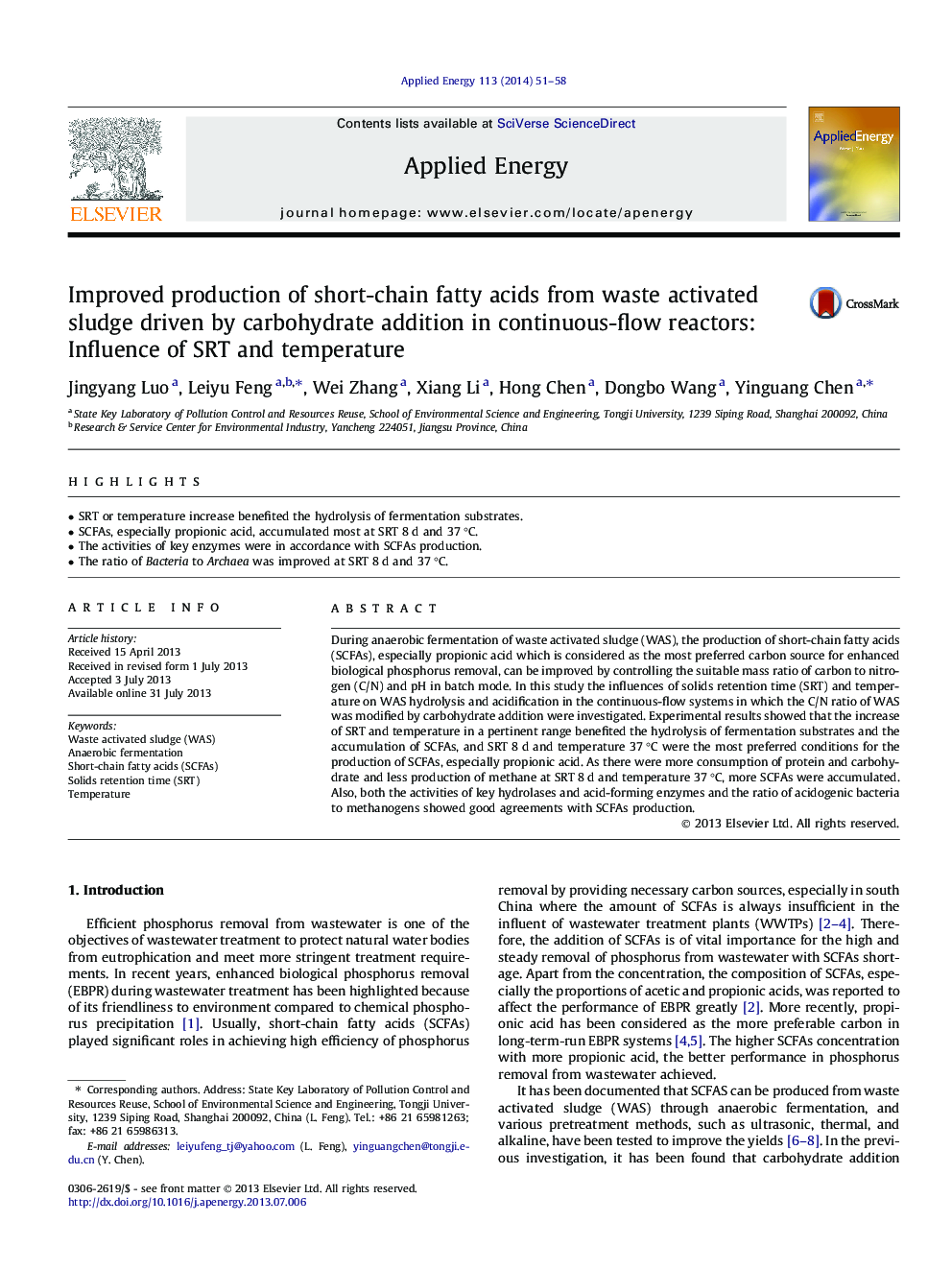| Article ID | Journal | Published Year | Pages | File Type |
|---|---|---|---|---|
| 6691855 | Applied Energy | 2014 | 8 Pages |
Abstract
During anaerobic fermentation of waste activated sludge (WAS), the production of short-chain fatty acids (SCFAs), especially propionic acid which is considered as the most preferred carbon source for enhanced biological phosphorus removal, can be improved by controlling the suitable mass ratio of carbon to nitrogen (C/N) and pH in batch mode. In this study the influences of solids retention time (SRT) and temperature on WAS hydrolysis and acidification in the continuous-flow systems in which the C/N ratio of WAS was modified by carbohydrate addition were investigated. Experimental results showed that the increase of SRT and temperature in a pertinent range benefited the hydrolysis of fermentation substrates and the accumulation of SCFAs, and SRT 8 d and temperature 37 °C were the most preferred conditions for the production of SCFAs, especially propionic acid. As there were more consumption of protein and carbohydrate and less production of methane at SRT 8 d and temperature 37 °C, more SCFAs were accumulated. Also, both the activities of key hydrolases and acid-forming enzymes and the ratio of acidogenic bacteria to methanogens showed good agreements with SCFAs production.
Keywords
Related Topics
Physical Sciences and Engineering
Energy
Energy Engineering and Power Technology
Authors
Jingyang Luo, Leiyu Feng, Wei Zhang, Xiang Li, Hong Chen, Dongbo Wang, Yinguang Chen,
